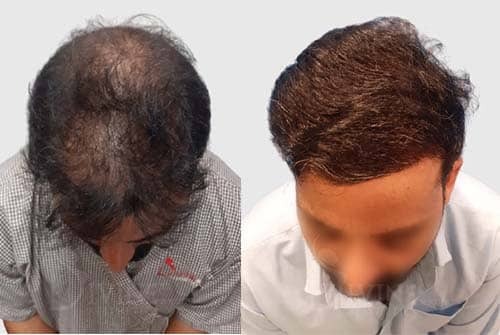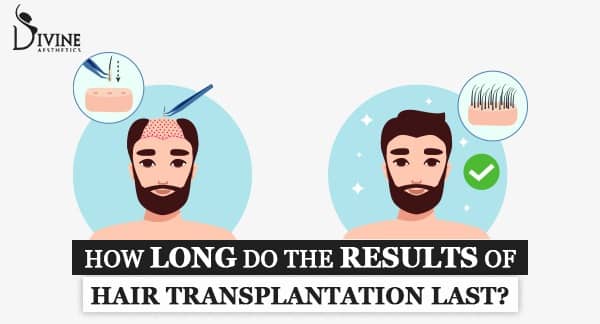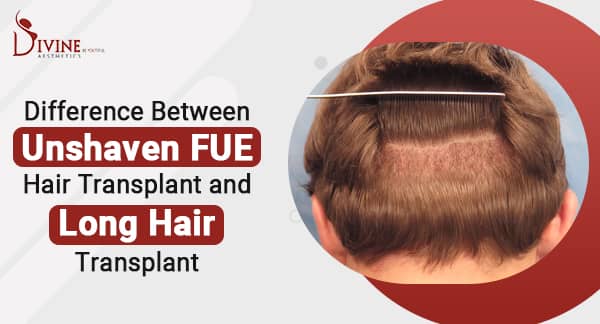Hair loss can be a frustrating and embarrassing issue for many people, and a hair transplant is one of the options that people consider to address this problem. However, the cost of a hair transplant can be a significant investment, and it’s natural to wonder whether it’s worth it. In this blog post, we’ll explore the cost of a hair transplant and discuss whether it’s a worthwhile investment.
What is a Hair Transplant?
A hair transplant is a surgical procedure that involves transferring hair follicles from a donor site (usually the back of the head) to the balding or thinning areas of the scalp. Primarily there are two methods with the help of which hair transplants are performed. These are known as FUT and FUE hair transplants.
FUT involves removing a strip of skin from the donor area, which is then divided into individual hair follicles and transplanted into the recipient site. On the other hand when it comes to FUE, the surgeon removes the individual hair follicles from the donor area and transplants them into the recipient site.
Cost of a Hair Transplant
The pricing of a hair transplant can differ significantly based on various factors, including the clinic’s geographical location, the surgeon’s level of expertise, the quantity of grafts needed, and the specific technique employed for the hair transplantation process.
It’s important to note that the cost of a hair transplant is typically not covered by insurance, as it’s considered a cosmetic procedure. This means that patients will have to pay out of pocket for the procedure.
Browse the related video
Is it Worth the Investment?
Now that we have an idea of how much a hair transplant costs, the question is whether it’s worth the investment. The answer to this question will depend on several factors, such as the patient’s expectations, the severity of their hair loss, and their financial situation.
First, it’s essential to manage expectations. A hair transplant can improve the appearance of hair loss, but it’s not a magic solution that will completely restore a full head of hair. The results may not appear to be perfect or as you imagined, and that’s important to remember.
Second, the severity of hair loss will also play a role in whether a hair transplant is worth the investment. A hair transplant may not be necessary or appropriate for someone who has only minor hair thinning or a receding hairline. On the other hand, someone with significant hair loss may benefit from a hair transplant, as it can significantly improve their appearance and self-esteem.
Finally, the patient’s financial situation is an important consideration. A hair transplant is a significant investment, and it’s important to ensure that it’s within one’s financial means. Patients should weigh the costs of the procedure against the potential benefits and determine whether they can comfortably afford it.
Browse the related video
Potential Benefits of a Hair Transplant
While the cost of a hair transplant may seem high, there are several potential benefits that patients may experience, which can make the investment worthwhile.
Improved Appearance and Confidence
The primary benefit of a hair transplant is an improved appearance, which can lead to increased confidence and self-esteem. Hair loss can be a significant source of insecurity and anxiety for many people, and a hair transplant can help to restore their confidence and improve their overall quality of life.
Permanent Solution
Another benefit of a hair transplant is that it’s a permanent solution. Unlike other hair loss treatments, such as medications or hairpieces, a hair transplant involves transplanting hair follicles that are resistant to DHT, the hormone that causes hair loss. This means that the transplanted hair will continue to grow and will not fall out like the hair in other areas of the scalp.
Low Maintenance
A hair transplant is also a low-maintenance solution. Once the transplanted hair has fully grown, it can be treated like natural hair, which means that patients can wash, style, and cut it as they would with their natural hair. This is in contrast to other hair loss treatments, such as hairpieces, which require regular maintenance and replacement.
Natural-Looking Results
Finally, a hair transplant can provide natural-looking results. When performed by an experienced and skilled surgeon, a hair transplant can create a hairline and overall appearance that looks natural and aesthetically pleasing. This means that patients can achieve their desired appearance without it being obvious that they have had a hair transplant. Return on Investment
Hair transplant surgery is a significant investment, but it can have a significant impact on a person’s appearance and confidence. In addition, it may provide a positive return on investment (ROI) in various ways.
One way a hair transplant may provide a positive ROI is by improving a person’s career opportunities. Research has shown that people with a more youthful appearance are more likely to be hired for jobs and earn higher salaries. By restoring a full head of hair, a person may appear more youthful and attractive to potential employers, which may increase their chances of getting hired or receiving promotions.
The hair transplant surgery may also provide a positive ROI in social situations. People with hair loss may feel self-conscious and avoid social interactions or situations where they may be exposed to scrutiny. By restoring a full head of hair, a person may feel more confident in social situations, which may lead to improved relationships and social opportunities.
Finally, a hair transplant may provide a positive ROI in terms of overall well-being. Hair loss can have a significant impact on a person’s mental health, causing depression, anxiety, and other emotional issues. By addressing hair loss and restoring a full head of hair, a person may experience improved mental health and overall well-being.
The Potential risks that getting a hair transplant could pose –
While hair transplant surgery can be a viable solution for addressing hair loss, it’s important to be aware of the potential risks associated with the procedure. Akin to most surgeries a hair transplant does pose some potential risks as well. Some potential risks of getting a hair transplant include the possibility of infection at the donor or recipient site, bleeding during or after the procedure, scarring, and complications related to anesthesia. Additionally, some individuals may experience temporary or permanent shock loss, where existing hair surrounding the transplant area may fall out. It’s crucial to consult with a qualified and experienced surgeon, follow proper pre- and post-operative care instructions, and thoroughly discuss any concerns or questions with the medical professional to minimize the risks and increase the chances of a successful and safe procedure.
Conclusion
The cost of a hair transplant can be a significant investment, but for many people, it’s a worthwhile one. While the results may not be perfect, a hair transplant can improve the appearance of hair loss, restore confidence, and provide a permanent, low-maintenance solution. Patients should carefully consider their expectations, the severity of their hair loss, and their financial situation before deciding whether a hair transplant is right for them. It’s also important to choose an experienced and skilled surgeon who can provide natural-looking results.
FAQs –
Is a hair transplant worth the investment?
Ans. A hair transplant can be worth the investment for individuals who are experiencing significant hair loss and seek a permanent solution to restore their appearance and confidence. It can improve the quality of life and provide long-term results. However, the decision ultimately depends on personal circumstances, such as the severity of hair loss, expectations, and financial considerations.
How much does a hair transplant cost?
Ans. The cost of a hair transplant varies depending on factors such as the location of the clinic, the surgeon’s expertise, the number of grafts required, and the chosen method of transplantation. It’s important to consult with a qualified surgeon to get an accurate estimate based on individual needs.
How can I finance my hair transplant surgery?
Ans. Yes, there are financing options available for hair transplant surgery. Many clinics offer payment plans or medical credit cards that allow patients to pay for the procedure in installments. It’s advisable to discuss financing options with the clinic and carefully consider the terms and interest rates before making a decision.
What are the potential benefits of a hair transplant?
Ans. A hair transplant can provide several benefits, including improved appearance, increased self-confidence, and a permanent solution to hair loss. It allows individuals to have natural-looking hair that can be styled and maintained like their own. Additionally, it can positively impact career opportunities, social interactions, and overall well-being.
Do any alternative treatments for hair loss exist?
Ans. Yes, there are alternative treatments for hair loss, such as medication, laser therapy, and scalp micropigmentation. These options may be more suitable for individuals with milder hair loss or those who prefer non-surgical approaches. However, it’s essential to consult with a healthcare professional to determine the most appropriate treatment based on individual circumstances.
What potential risks could getting a hair transplant pose?
Ans. While hair transplant surgery is generally safe, there are potential risks associated with the procedure. These risks include infection, bleeding, scarring, complications related to anesthesia, and temporary or permanent shock loss. It’s crucial to choose an experienced surgeon, follow proper pre- and post-operative care instructions, and have a thorough understanding of the potential risks before undergoing the procedure.
Will insurance cover the cost of a hair transplant?
Ans. Insurance usually doesn’t cover a hair transplant as it is considered to be a cosmetic surgery. It is advisable to check with the insurance provider to determine their policy regarding hair transplant coverage. However, insurance may cover hair transplants performed for reconstructive purposes, such as due to trauma or medical conditions.












